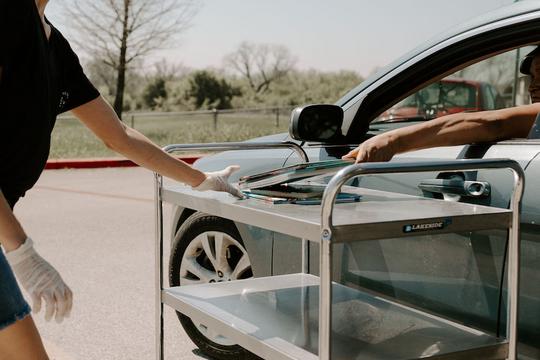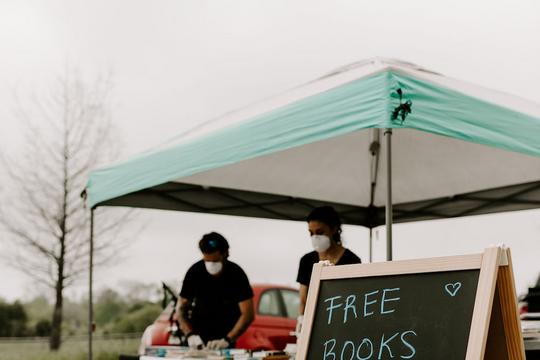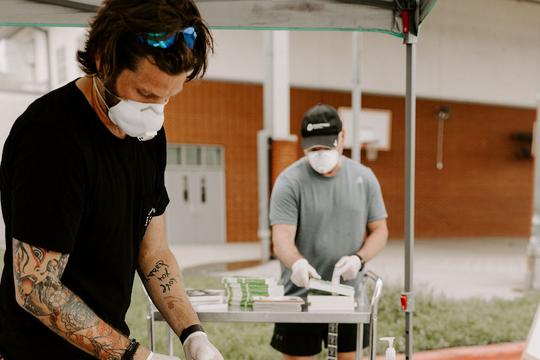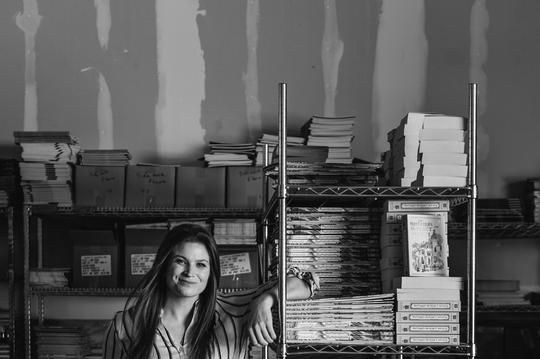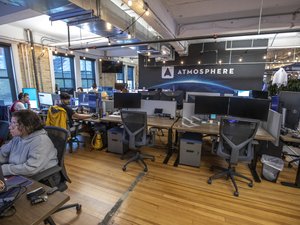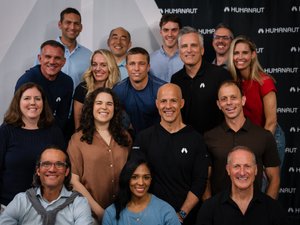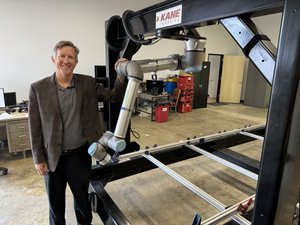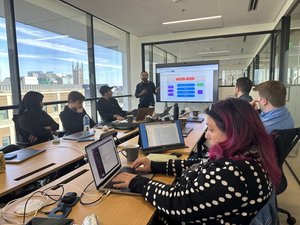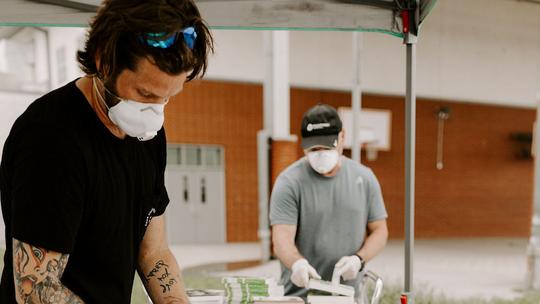
Jessica Ewing, like many of us, remembers the Covid-19 pandemic starting rather slowly, with news of trouble in China and the early days of a community conversation about whether SXSW should be canceled this year.
"It wasn’t obvious to everyone at that point how serious this was," she recalls.
Then SXSW was canceled and Ewing, who is co-founder and CEO of fast-rising Austin children's book subscription startup Literati, started getting memos, emails and texts from fellow founders about how they were gearing up to protect employees and their businesses.
On the Monday after SXSW was canceled in mid-March, she conducted an all-hands meeting with the company's 60 employees about proper hand washing techniques. They created a signup sheet for employees to take turns washing surfaces with bleach. They were about as ready as they could be in that moment.
"And then, by Friday, we were working from home," she said. "Everything changed in a week."
"We put forth a good effort, but no one felt safe."
That long and trying week was just the beginning of the journey.
Early May
Across two interviews -- one in early May, the other this week -- Ewing shared some of the ways her young company navigated the emerging threat to our health and economy. Her story is one of perhaps thousands in Austin of founders finding their path through the unknown.
For Literati, shifting its corporate team from its office in East Austin to working from home was relatively simple. But the startup also has an East Austin warehouse where it stores its books before shipping them to families. And Literati's VP of operations is a cancer survivor in her late 60s, putting her at increased risk for complications associated with Covid-19.
Gallery
"It just wasn't an option to have her running the fulfillment center," Ewing said. So Ewing took over for a few weeks before finding a general manager who is a Navy vet with experience running a fulfillment center for Spreetail in Nebraska.
Meanwhile, they've procured a forehead temperature checker, in addition to gloves and masks. And they introduced hazard pay -- a 35% pay boost for fulfillment center employees.
Literati also found an unexpected advantage in that their warehouse is split between three buildings.
“In a non-Covid environment, it’s been an incredible inefficiency for us…," she said. "But in this environment it was actually an advantage because it allowed us to break our teams up into smaller units where there was less exposure.”
Meanwhile, with a team including Navy vets, Literati has been incorporating some Navy SEAL ethos into its business culture -- encouraging a positive attitude, taking ownership for problems and not blaming others.
"The casualties of remote work largely go unspoken."
And, to date, no one on Literati's team has contracted the virus. But Ewing has worried about the other invisible threat -- anxiety, depression and isolation employees may be going through.
“There’s plenty of people who are rah-rah, doing great, we’re a team. We have a lot of positive momentum," she said. "But it’s the voices that I’m not hearing that are more disconcerting to me. It’s hard as a CEO to keep a pulse of knowing what’s going on with each employee when we’re this far apart.”
Without face-to-face interaction, Ewing added a spot on her calendar for any employee to set a confidential meeting with her to discuss any struggles, unsafe activity or whatever they want to talk about.
She also said they had one employee planning to quit. But, through discussions, they learned the employee didn't necessarily want to leave but was struggling with the isolation and depression of WFH life. They were able to retain them.
“The casualties of remote work largely go unspoken," Ewing said. "Employees suffering from a sense of isolation, or depression or anxiety aren’t necessarily likely to speak up. So that’s something I’m constantly mindful of."
Meanwhile, Literati is among startups that had strong momentum going into the pandemic and even some new opportunities. As a subscription book club for kids with its own curated collection, the company was able to keep fulfilling orders and provide stories to children at a time when Amazon de-prioritized book shipments and most book stores and libraries were mostly closed down.
Even in our second interview this week, after stores have been allowed to open and Amazon shipping has steadied, Ewing said Literati's metrics remain promising. One of its metrics is how many families keep all five books in subscription pack instead of returning some of them. Literati had been averaging about 35% who kept all five before the pandemic and saw that number rise to about 45%, a promising sign.
"We view ourselves as performing a very important role for the world right now," she said. "So we’ve only raised our expectations and bumped up our growth targets and demanded more from ourselves. That’s what you need to do to keep people together in these environments.”
Late May
Though Literati, which shares an office building with Lyft, has kept its space open for employees to use, no one had been going in. But by late May, a couple team members have started working there with safety precautions, and Ewing said their productivity seemed to spike having that interaction and collaboration.
"We're leaving the office open for anyone who wants to use it," she said. Literati doesn't plan to require anyone who feels unsafe to return to the office at any point, but she said there's no plan on making WFH permanent.
While Literati is on firm footing for the remaining months of the pandemic, there are still plenty of tough times outside the office.
Ewing's parents, who are in their 70s, live in Michigan. She wants to go see them.
"I don't see my parents at all, which is hard and it's sad," she said.
Ewing considers herself a creative introvert -- but, pre-Covid, she regularly got out to socialize. And video chat is not filling that void.
"... seeing my face all the time on screen is somewhat nerve-racking for me. I feel conscious," she said. "So I'm actually really tired of video chat. I find absolutely no comfort or camaraderie in Zoom get-togethers. It's a negative social impact for me. I feel more connected sitting outside alone with the trees, having a glass of wine than I do talking to anyone on a video chat."
Likewise, not seeing people in the office has been a tough change. Ewing said she prefers a busy office -- something like the "West Wing," with fast conversations and movement all the time.
Now, that's gone. Sorta.
This week, the Literati had a socially-distanced sparklers and champagne event for the birthday of the company's other co-founder, Kelly Carroll.
They all drove to Carroll's house, stood apart, distributed sparkers and champagne for a toast while she sat on the lawn.
"And then we all went up one-by-one and dropped flowers and notes on her lawn," she said. "It was really cute."
Sometimes just seeing a smiling face in real life can lift everyone's spirits.
"That was the first time I've seen my team since the outbreak," she said. "It was really fulfilling and wonderful."
